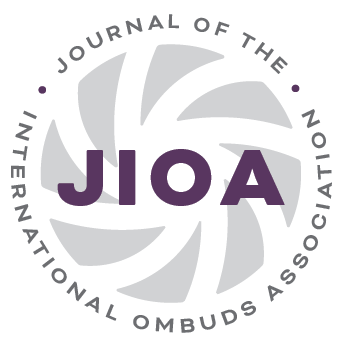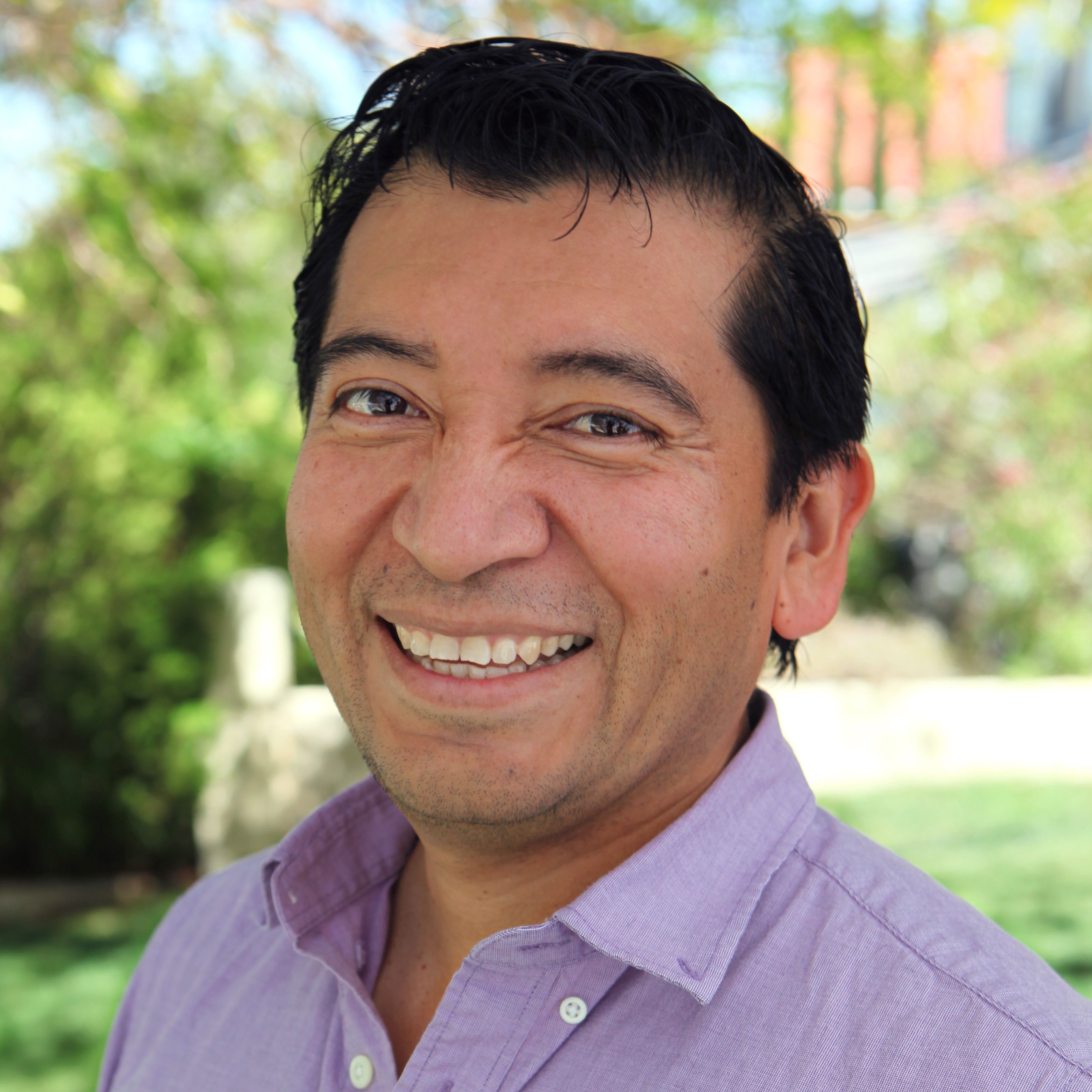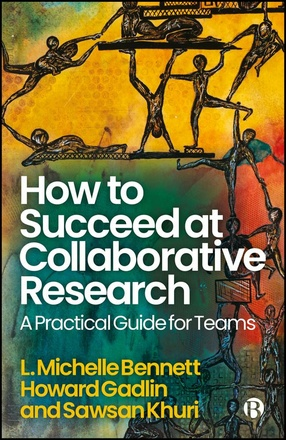
Submission deadline Extended to Sunday, February 22nd
Dear In Practice,

Submission deadline Extended to Sunday, February 22nd
Dear In Practice,
 By Tracey Brant COOP, PCC
By Tracey Brant COOP, PCC
Organizational Ombuds - Dartmouth College
She had been reassigned from a committee. That was the issue, at least on paper. But fifteen minutes into our conversation, I could feel something larger moving beneath her words.
The organizational impact seemed modest - someone else would step into her role and the committee’s work would continue. Yet her voice was sharp, her sentences quick. She kept returning to the same details, circling back to moments I thought we already explored. I clarified the issue. We talked through possible responses. Still, the conversation looped.
 The Journal of the International Ombuds Association (JIOA) is seeking to expand its database of peer reviewers. We invite experienced practitioners, scholars, and scholar-practitioners with expertise relevant to organizational ombuds practice to apply.
The Journal of the International Ombuds Association (JIOA) is seeking to expand its database of peer reviewers. We invite experienced practitioners, scholars, and scholar-practitioners with expertise relevant to organizational ombuds practice to apply.
JIOA reviewers play a critical role in advancing the quality, rigor, and relevance of ombuds-related scholarship. Reviewers are asked to provide thoughtful, constructive, and confidential feedback to authors, supporting both scholarly integrity and the development of the field.
Prospective reviewers should be familiar with research method, professional writing, or applied scholarship relevant to ombuds work. Prior reviewing or publishing experience is welcome but not required.
Those interested in being considered for the reviewer pool are encouraged to review the JIOA Review Procedures and complete the reviewer application form at this link: https://forms.gle/Q8Q2W4LYWRDU1AEZ7.
Greetings Higher Education Colleagues,
My name is Laura Zuppo, and I am a Doctoral Candidate and Student-serving Ombuds at the University of South Florida. I am conducting a qualitative research study exploring the experiences of collateral or dual-role student-serving ombuds in higher education.
For the purposes of this study, a collateral or dual-role student ombuds is an individual who is directly employed by their institution and who serves students while also holding one or more additional roles or responsibilities on campus. Ombuds who also serve faculty, staff, and other constituents are invited to participate.
Organizational Ombuds offices are increasingly shaped by a range of structural and operational models that reflect shifting institutional needs, resource constraints, legal environments, and cultural contexts. From traditional in-house roles to embedded, collateral, outsourced, hybrid, regional, and shared-service approaches, the model through which organizational ombuds services are delivered carries significant implications for independence, accessibility, credibility, and ethical practice.
This special issue seeks to explore the evolving landscape of ombuds models and their impact on the theory and practice of the profession. We invite submissions that critically examine how different structural arrangements shape the work of ombuds and influence organizational trust, conflict engagement, and systems change.
We welcome manuscripts that address topics such as:

By Nadia Ferrara, PhD,
Ombuds - Indigenous Services Canada
It is a real honor for me as Ombuds to share these truths by Indigenous Elders from British Columbia, Canada. I met with them recently and they have created these videos to share with others their lived experiences, to ensure we listen and learn from our history. I think it is so critical as space creators and space holders to engage with humility and be open to learning. These videos speak to the principles of restorative justice and most importantly, speak to creating spaces that can nurture a sense of belongingness by feeling heard.
Kwasun Cultural Education Society was founded in 2024 on the initiative of 10 Coast Salish Elders and Knowledge Keepers intent on educating anyone interested in learning about Coast Salish cultural values and ways of being. The goal of the Elders was to encourage reconciliation: to create relationships between Indigenous and non-Indigenous learners for the betterment of Canadian society. Kwasun has hosted numerous workshops because, as the Elders say, "if we are going to turn this around, we have to go back to the teachings." They have presented to BC's Legislative Assembly staff, instructors and students at post-secondary institutions including University of Victoria, Vancouver Island University, Stz'uminus Native College, Pearson United World College, the RCMP, health care organizations including Parent Support Services of British Columbia and First Nations Health Authority among others. Unlike so many Reconciliation programs, Kwasun offers teachings and cultural lessons to youth and adults alike which are grounded in the language (Hul'q'umi'num'), land and ceremony. Kwasun is rooted in the notion that "important work is never done alone". Elders work together to represent and model their cultural knowledge, enacting their lessons in ways that learners can join in the work.
 My name is Misha Teixido. I am a graduate student studying conflict resolution at the Heller School for Social Policy and Management of Brandeis University. In the final year of my master’s program, I am currently working on my master’s capstone, which is about ombuds attitudes toward field practices and impressions in the United States.
My name is Misha Teixido. I am a graduate student studying conflict resolution at the Heller School for Social Policy and Management of Brandeis University. In the final year of my master’s program, I am currently working on my master’s capstone, which is about ombuds attitudes toward field practices and impressions in the United States.
Those who engage with the field of ombuds work, whether as aspiring ombuds or with the intent to hire a conflict resolution expert, seek clarity for the expectations of the role they look to fill, such as understanding specialization or conduct to follow. The need for such clarity is a situation that, while initially presented as surface level—many professions have specializations within their respective fields—is more ambiguous in the ombuds world. The position of an official advocate for complaints and conflicts has existed for thousands of years, each holding a variety of responsibilities in numerous contexts, some of which are more formal than others. Many of these positions use the term ombuds, ombudsperson, or ombudsman to describe their role, fairly satisfying the etymology of the word that roughly translates to “representative” from Swedish. It must be noted, however, that each implementation of ombuds varies greatly, as the position fluctuates in scope and responsibility from organization to organization, government to government, and country to country, culminating in the diverse application of ombuds practices that most who work in the field of ombuds work are familiar with (e.g. advocate ombuds, classical, organizational, etc.).
With a position that contextually varies as much as an ombuds, it is critical to engage with the field to ensure that the understanding of the role progresses both internally and externally in a relatively uniform manner. The purpose of this research is to understand how ombuds assess their own personal practices as well as how they view the practices of the ombuds field in the United States as a whole, so as to better understand how the field of ombuds work is perceived internally in the United States. Questions about how the ombuds office one works is modeled and functions, as well as inquiries into how ombuds became introduced to the field of ombuds work are at the core of understanding current perceptions and practices of ombuds work in the United States. Scholarship reporting the history of the ombuds role, discerning types of ombuds offices and models from one another, and exploring implementation of ombuds design exists, but limited research has been done that analyzes the current view of ombuds practices in the United States as understood by ombuds themselves (Tompkins Byer 2017). The core benefit of this research is that it provides an opportunity for practicing ombuds to share their understanding of ombuds work in the American context. The information shared in this survey may provide benefits to public understanding of ombuds nationwide, and may contribute to the continued evolution and evaluation of ombuds work in the United States. Responses may lead to improved efficacy of ombuds offices, as well as overall strengthening of ombuds office functions. Additionally, information shared may contribute to making the ombuds field more accessible, both for aspiring ombuds as well as for organizations considering the implementation or use of an ombuds service. An aspiring ombuds myself, hearing from ombudspersons in the field will provide me with a stronger understanding of how the role of the ombuds varies in numerous contexts.

Deadline extended for responses to Sunday, January 25th, 2026.
Dear In Practice,

by Reese R(ai)mos
Director - University Ombuds Office, Virginia Tech
To understand where we’re heading, it helps to look back. Two decades ago, I read Ray Kurzweil’s The Singularity Is Near, where he predicted an exponential rise in technology that would culminate in artificial and human intelligence merging around 2045. Some called him unrealistic; others, like Bill Gates, praised his foresight. Whether you see him as a visionary or a dreamer, there’s no denying that AI is rapidly reshaping our world, and, for Ombuds, our profession.
Rather than debate the timing of the “singularity,” it’s more pressing to examine what AI is already doing to our practice. Across fields, technology is transforming how information is created, managed, and used. In July 2025, for example, a robot trained solely on surgical videos autonomously performed a major phase of a gallbladder removal at Johns Hopkins. That’s no longer science fiction, it’s our present.
 As Ombuds, we often find ourselves supporting individuals and groups working in high-stakes, cross-functional, and/or interdisciplinary environments. These spaces can offer tremendous opportunities for innovation. These environments also frequently bring the interpersonal and structural challenges that lead people to our doors. Researchers, in particular, often work within complex collaborations that span departments, institutions, cultures, and differing funding expectations. When roles, expectations, or communication norms are unclear, relational strain can quickly appear. Today's complex research challenges demand effective teams, yet researchers rarely receive training in teamwork skills crucial for collaborative success. How to Succeed at Collaborative Research: A Practical Guide for Teams (L. Michelle Bennett, Howard Gadlin, and Sawsan Khuri (2025)) is a resource for us as Ombuds to help us understand and support those researchers that may come to our office.
As Ombuds, we often find ourselves supporting individuals and groups working in high-stakes, cross-functional, and/or interdisciplinary environments. These spaces can offer tremendous opportunities for innovation. These environments also frequently bring the interpersonal and structural challenges that lead people to our doors. Researchers, in particular, often work within complex collaborations that span departments, institutions, cultures, and differing funding expectations. When roles, expectations, or communication norms are unclear, relational strain can quickly appear. Today's complex research challenges demand effective teams, yet researchers rarely receive training in teamwork skills crucial for collaborative success. How to Succeed at Collaborative Research: A Practical Guide for Teams (L. Michelle Bennett, Howard Gadlin, and Sawsan Khuri (2025)) is a resource for us as Ombuds to help us understand and support those researchers that may come to our office.
Specifically, this book provides guidance that may help us support researchers with tools to build and sustain effective teams. Drawing on organizational psychology, team science and the authors’ own experience, it offers concrete practices for fostering collaborative innovation, managing diverse perspectives and achieving high-impact outcomes. The book is intended for researchers, administrators and facilitators seeking to build high-performing teams. with a special focus on enabling researchers to work effectively across different disciplines, organizations, and sectors to meet the evolving demands of complex research projects.

Dear In Practice,
I’m confused about what to do when visitors copy or blind copy me on emails without warning or explanation. I respect visitor self-determination, and I typically avoid intervening absent an explicit agreement with the visitor about why and how I would do so.
A message from our Diversity, Equity, Inclusion, Accessibility, and Belonging (DEIAB) committee
On October 9, 2025, we join Ombuds professionals globally to honor Ombuds Day, under the theme “Ombuds: Empowering Voices, Resolving Challenges.” This year, we especially recognize the powerful intersection between the Ombuds role and our shared commitment to Diversity, Equity, Inclusion, Accessibility and Belonging (DEIAB).
Ombuds serve as trusted, confidential and impartial partners within organizations, amplifying voices that may otherwise go unheard and easing tensions with respectful, equitable solutions.
October 11th is National Coming Out Day. This day is set aside for folks identifying as LGBTQIA+ to publicly share their internal identity. It celebrates the right to live authentically and without fear. It’s a reminder that identity, across race, culture, gender and orientation, should never be a barrier to belonging. Coming out, or inviting someone in, is a personal and courageous act of reclaiming that right.
This message aligns deeply with Ombuds work. We are proactive allies for everyone. We don’t wait for crises to erupt or tensions to build. We offer a safe, confidential and judgment-free space to explore difficult emotions, share experiences and seek support.
Guided by our principles of independence, impartiality, informality and confidentiality, we as Ombuds practitioners help individuals speak their truth and navigate challenges with dignity and care.
From IOA's Communications Committee,
Every October, Ombuds Day offers an opportunity to highlight the valuable role Ombuds play in organizations, communities, and institutions. Whether you’re an organizational ombuds, classical ombuds, or advocate for the profession, the day is a chance to spread awareness, educate the public, and showcase the positive impact of Ombuds.
The good news? You don’t need a big budget to make a big impact. Here are some low-cost and creative ways Ombuds can celebrate Ombuds Day and help others understand the role:

Dear In Practice,
In my role as ombuds, I regularly offer workshops on navigating conflict, effective communication, and related topics. I love working with groups and have also had occasion to facilitate listening sessions, restorative circles, and other group processes. I see these as important opportunities for capacity building and also as a way to more publicly add value within my organization. Sometimes these services are requested in response to ongoing climate concerns or after a challenging incident within a department. At times, attendance is required. I’ve drawn a line and declined to provide my organization with the names of those who attend these events, but the very fact that I’m working with what feels like a captive audience makes me uneasy. I felt similarly when I was in the academic sector and would sometimes be asked to join a faculty member’s class to lead a restorative intervention with students. Is it ethical for an ombuds to lead or facilitate processes where those in attendance are required to be there?

It’s been a year since In Practice published our first column. We are thrilled that what started as a conversation among colleagues has developed into a lively public forum discussing the ethical dilemmas we often face as ombuds. The interest in the discussion is clear as the column’s posts regularly receive the largest readership on The Independent Voice blog.
We were pleased to learn that the column’s contents are prompting important real-time conversations in ombuds program staff meetings, one-on-one mentoring sessions, graduate studies classrooms, and at ombuds-related forums. Engagement was our goal - and we hope for even more going forward.

Dear In Practice,
I have held a range of roles over the twenty years I’ve worked for my institution. Prior to my appointment as ombuds, I was a center director (supervising a small staff,) a student program liaison (supervising students working on undergraduate research projects,) and a faculty leadership development consultant (helping faculty navigate leadership and career progression concerns.) Since becoming an ombuds, I have been contacted by former students, faculty colleagues, and direct reports, asking me to serve as a reference. I feel awkward about all of the requests, although each has its own unique context: sometimes the requester is still affiliated with my institution, sometimes they are not; sometimes the opportunity being sought is internal and sometimes it’s external; sometimes the person asking is someone I’ve supervised and other times it’s someone I’ve come to know through other means. I’ve even had a request from a fellow ombuds, whom I’ve never worked with, to be a reference for an ombuds role they’ve applied for. While I feel flattered that my opinion of others seems to be valued, I don’t know where to draw the line. As an ombuds, are there circumstances under which me providing a reference is ethical and when do I “just say no?”

The Journal of the International Ombuds Association (JIOA) is pleased to announce the appointment of Karoline Trovato (she/her) as its first-ever Student Editor. Karoline, a fourth-year doctoral student in the Counseling Psychology program at the University of Maryland, brings a unique blend of academic excellence, editorial experience, and ombuds practice to the role. She currently serves as the graduate assistant for the UMD Faculty and Staff Ombuds Office, where she has contributed to training, outreach, and research efforts recently co-authoring a published article in JIOA on cultural humility in ombuds practice.
As Student Editor, Karoline will support editorial processes, contribute to the accessibility and visibility of the journal, and lead outreach efforts to engage graduate students and early-career scholars across disciplines. Her commitment to social justice, cultural awareness, and scholarly rigor exemplifies the values at the heart of the journal and the broader ombuds profession.
Karoline will join the JIOA Editorial Board under the leadership of Shannon Lynn Burton, Ph.D., Senior Editor. She will collaborate closely with Associate Editors Hector Escalante-Meza, Hans Kohler, and Julie Farmer, as well as Sarah Ghazal, Production Assistant.
 In celebration of Ombuds Day 2025, the Journal of the International Ombuds Association (JIOA) invites submissions for a special creative issue titled “Expressions of Ombuds in a Changing World” exploring the art and humanity of ombuds practice. This issue seeks to highlight the nuanced, deeply personal, and often untold dimensions of ombuds work through creative expression.
In celebration of Ombuds Day 2025, the Journal of the International Ombuds Association (JIOA) invites submissions for a special creative issue titled “Expressions of Ombuds in a Changing World” exploring the art and humanity of ombuds practice. This issue seeks to highlight the nuanced, deeply personal, and often untold dimensions of ombuds work through creative expression.
We welcome contributions in a variety of forms, including but not limited to:
Submission Deadline: July 15, 2025
Each year during Volunteer Week, we pause to celebrate the heart of our association - our dedicated, passionate, and inspiring volunteers.
To every one of you who gives your time, skills, and heart to support our mission: THANK YOU! Your efforts - whether visible in public or behind the scenes - create a ripple effect that strengthens our community, uplifts our work, and inspires those around you.
We asked a few of our volunteers to reflect on their volunteer experience in just one word. Here’s what they shared: